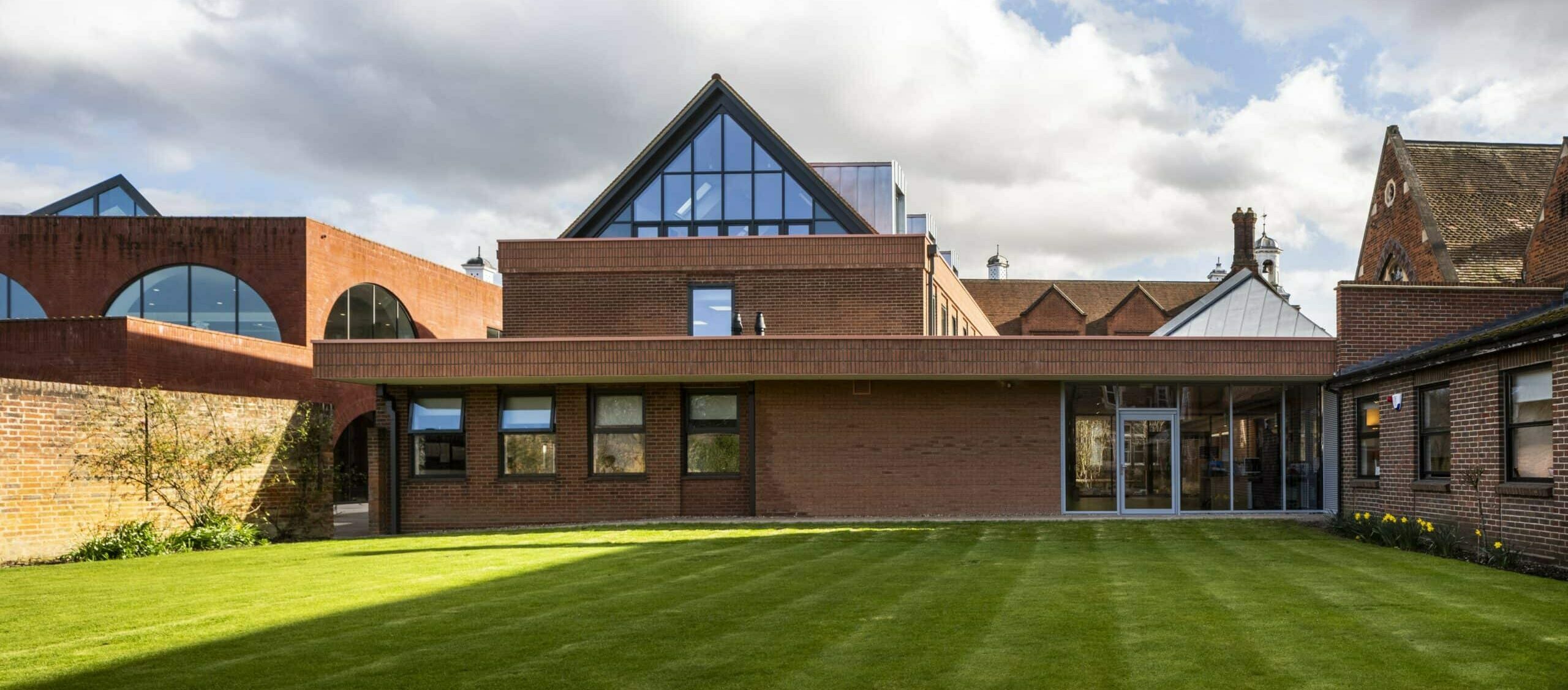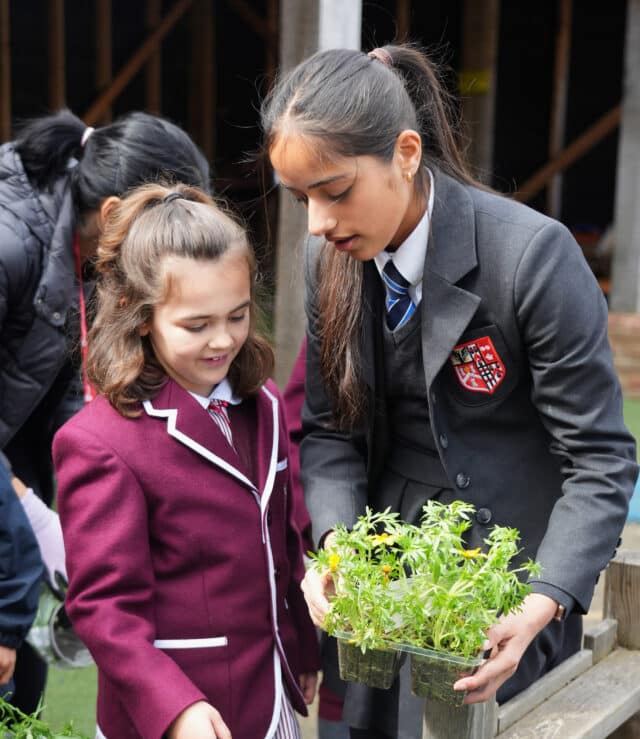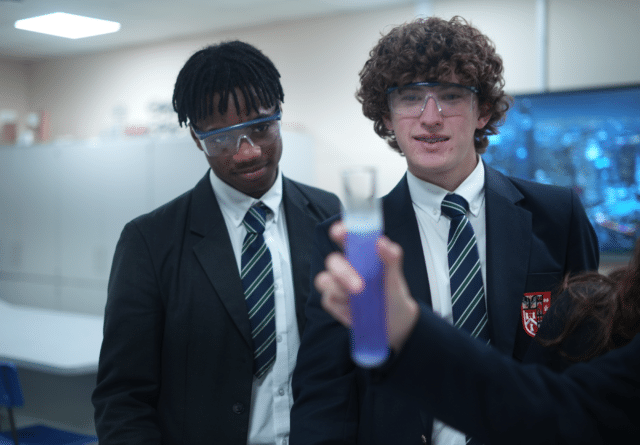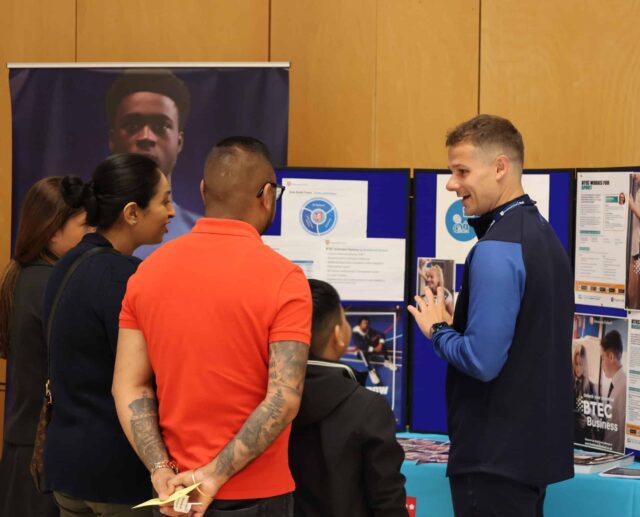Listening and Learning Together
We are dedicated to listening to our community and empowering our students with the knowledge, awareness, and confidence to critically evaluate social issues and confront prejudice wherever it arises.
As a school, we work together to look at what we can all do to maintain and promote inclusivity and work closely with our community to meet this challenge head-on.
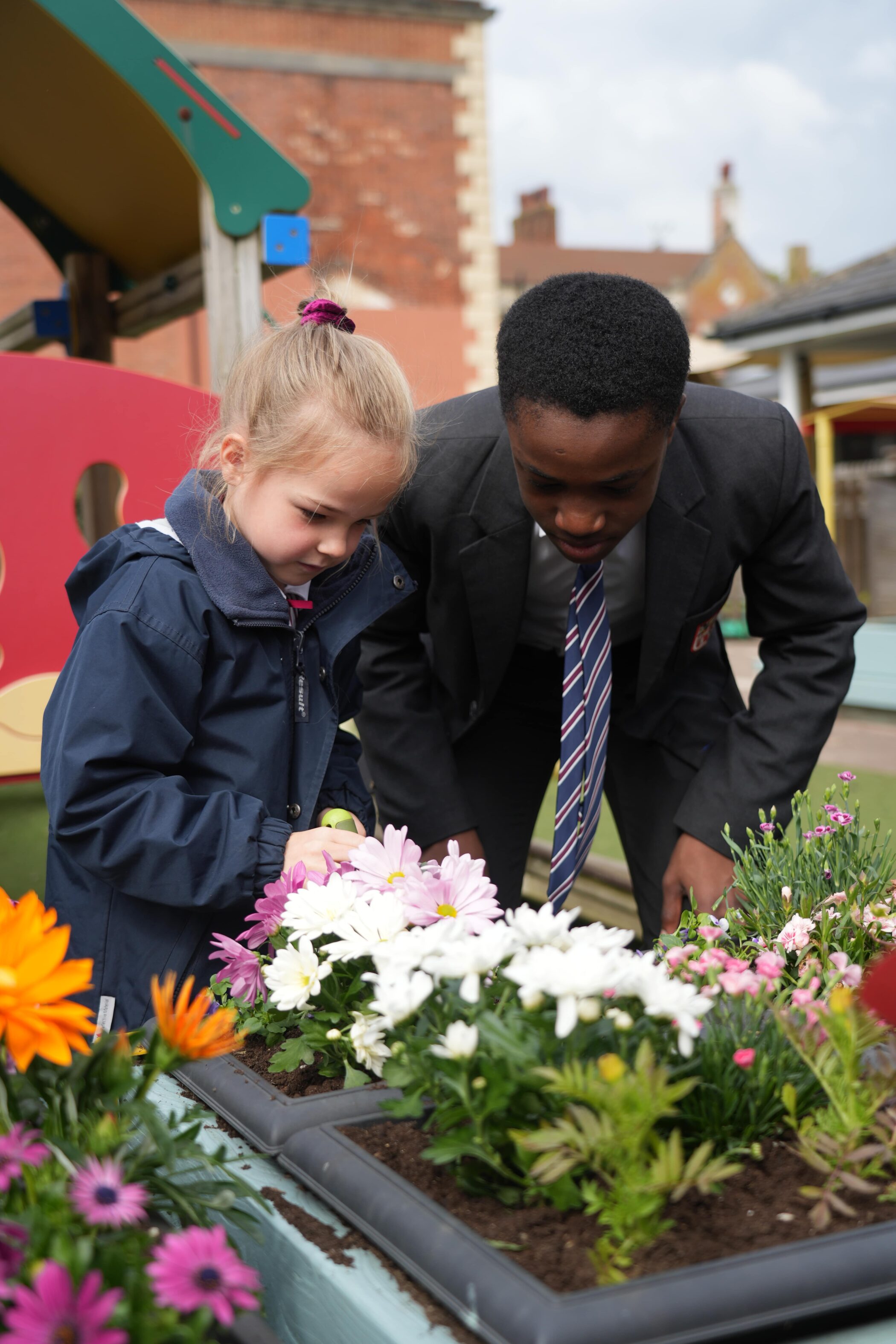
Dedication that Reflects Our Values
Our ambitious long-term strategy for our school considers how our values – Virtue, Learning and Manners – can help us achieve our goals, including our commitment to diversity. These values permeate the whole school, and we use them regularly to reflect on and explore subjects that are of importance to all of us.
The children of today will play an important role in shaping our world and a key part of our role at Brentwood School is to help our students understand how they can do good in the world, not just well in their exams.
We have made significant progress in ensuring our school is the inclusive and diverse community we want and need it to be. We welcome support from our Old Brentwood community, alongside our current students, staff and parents in helping us to be the change we wish to see in the world.

There is a sign in the Old Bean Library that reads: ‘Here in the past may the present find arms to fight the battle of the future.’
We cannot change the past, but we can evaluate it critically to better understand both what has helped our school endure as a place of learning that has enriched the lives of so many, and how we need to do things differently now and in the future.
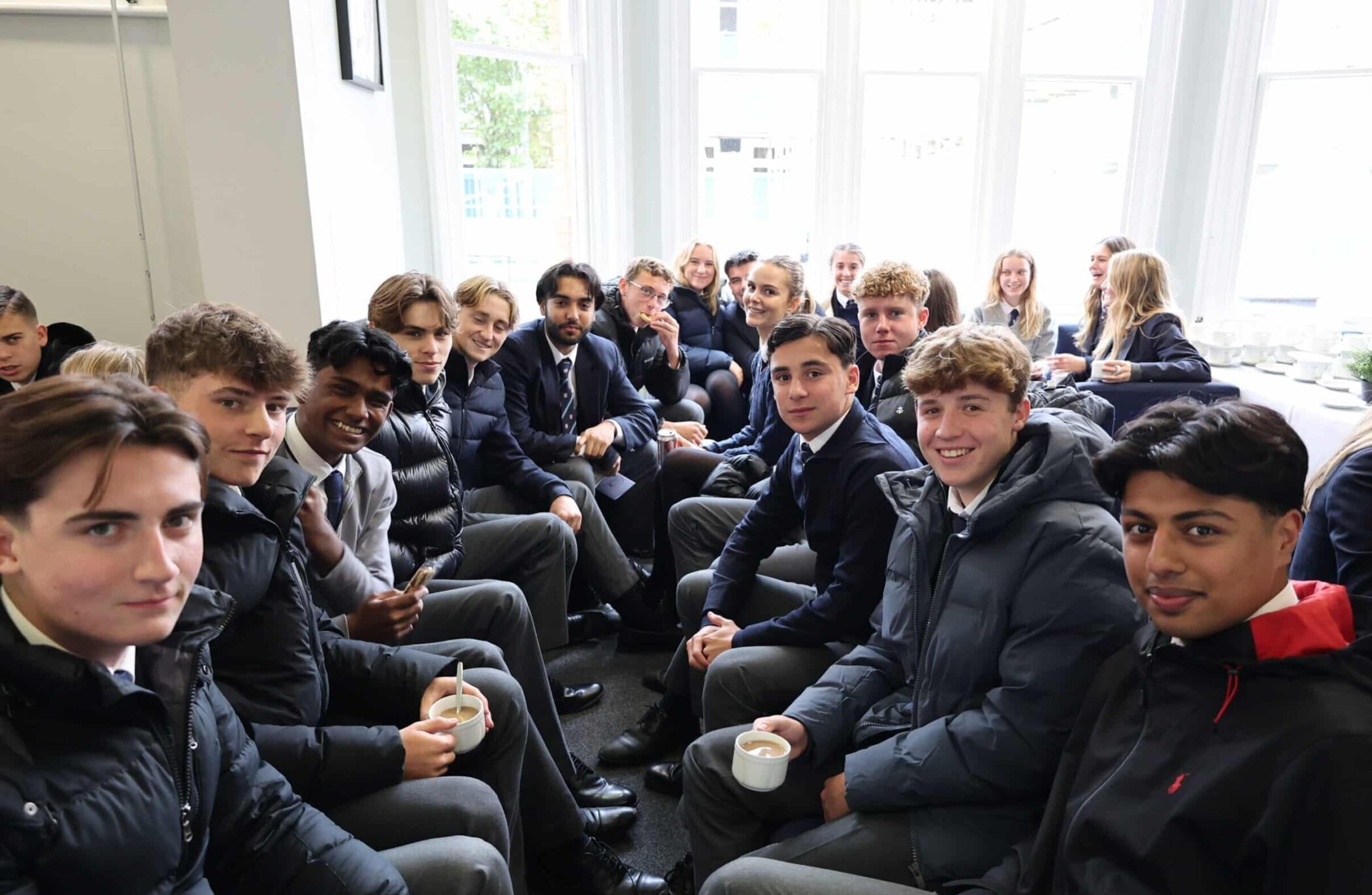
The Big Conversation
The Big Conversation provides our students with the opportunity to explore and talk openly about issues that have been prominent in broader society in recent times, all within the framework of our School values: Virtue, Learning and Manners, and as a part of our well-established Wellbeing (PSHE) programme.
Previous sessions have focused on Race, Sexuality, the School’s Values and Body Image. In Trinity 2024, The Big Conversation circumnavigated back to the topic of Racism, having recently completed the FLAIR Project survey with students and staff, to reflect on views and experiences related to race while at school.
Working alongside the FLAIR Project, we invited students to participate in an anonymous survey called ‘Race in The School Community’, which allowed students to reflect on their views and experiences related to race while at school. As part of The Big Conversation, we included both student and staff views and experiences, recorded through the survey data and voluntary focus groups to maintain a well-balanced and measured approach.
Our Commitment and Actions
Diversity and inclusivity is one of our priorities. Here are some of the advancements we have made so far:
- We have dedicated two whole school staff INSET sessions to unconscious bias training, fostering a more inclusive and reflective school culture.
- We introduced the FLAIR project and The Big Conversation to give everyone an opportunity to reflect on their views and experiences related to race while at school and help to create a more self-aware school environment.
- We provide students with the opportunity to reflect on and talk about diversity and inclusivity through Year Group assemblies and discussions. Students also run their own assemblies, events and activities.
- We updated our Equal Opportunities audit to include how we look at the recruitment of staff, rebalancing the underrepresentation of BAME applicants and working on creating a consciously inclusive recruitment strategy.
- We analyse annual data comparing the performance of students in public examinations.
We recognise that the positive developments outlined above do not mean we have completed our work in this area and our work is ongoing.
The cultural diversity of the school is highly valued by pupils, who demonstrate exceptional tolerance for all members of their community.
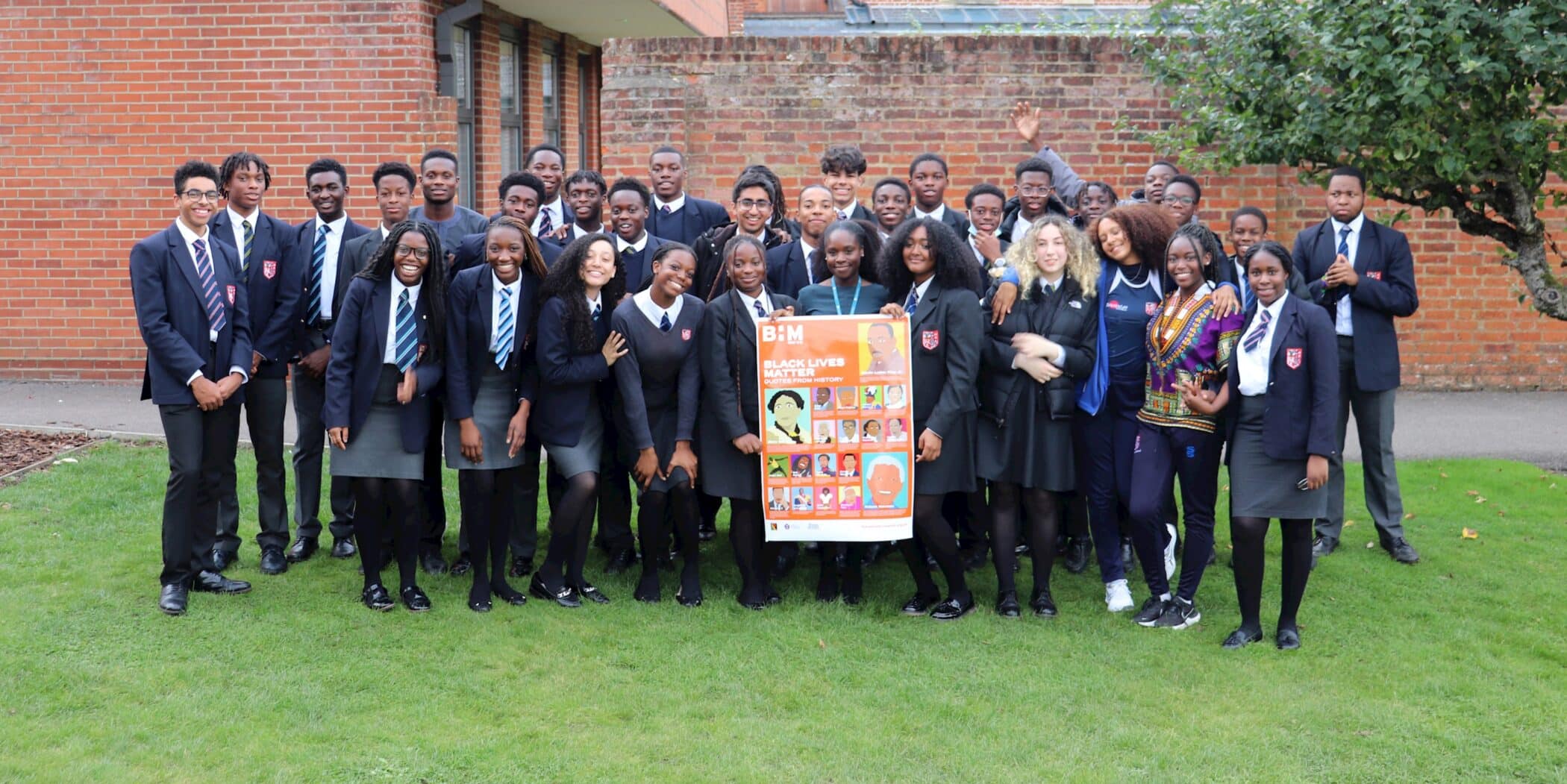
Diversity and Inclusivity in the Curriculum
We have, in recent years, updated our curriculum as part of our work on diversity and inclusivity. We do not shy away from confronting difficult questions about our country’s past.
The examples given below are not exhaustive, and our annual Equal Opportunities audit, which is presented to Governors, ensures that we maintain the momentum required for us to achieve our goals.
Examples include:
History
The Key Stage 3 History curriculum was comprehensively re-written. Our overarching theme is “History is Every Story”, with an emphasis on inclusivity and relevance to our students.
In Year 7, we focus on World Civilisations, including explorations of Benin, Mansa Musa in Mali, and Baghdad through the lens of Firas Alkhateeb’s Lost Islamic History. We spend one term (of nine, in Key Stage 3) on the Tudors and this includes consideration of the key question, “Was Tudor Society White?”, using Miranda Kaufman’s Black Tudors as a key text.
We have a strong emphasis on social history, using historians such as Anne Hughes and Emma Griffin, as well as explicit topics on the rights of women in the nineteenth century and the role of women in war. We also look at the struggle for recognition and rights for LGBTQ+ people through the study of the “Swinging Sixties”.
Our unit on Empire explores the social, political and economic consequences of colonialism, and develops students’ critical understanding of the period; teachers choose a particular region to study in-depth, such as India or South Africa. We have a unit on slavery including the Middle Passage, the conditions of slaves in the Caribbean, and the end of slavery (using texts such as David Olusoga’s Black and British).
When our students learn about the First World War, they study the contribution of Empire and Commonwealth soldiers, making use of Stephen Bourne’s Black Poppies. We also have a unit on migration, looking at the reasons for migration and its impact over several centuries.
Throughout the History curriculum, we examine a range of perspectives and develop critical reading skills; through a developing understanding of historiography, students consider interpretations, examine bias and evaluate evidence.
We are proud that we teach our students how to think, rather than what to think, and we believe that our curriculum helps develop the necessary skills, key historical concepts, and knowledge necessary to understand, and indeed to flourish in, our world and society.
English
We are working hard to ensure our English curriculum is inclusive and diverse. We believe that the canon is an important part of our literary heritage, but one that is expanding and evolving. There is no literary period that can be explored in a contextual or cultural vacuum. Through our choice of texts, interpretative approaches, and through discussion, we examine issues such as disability, cultural identity, gender, race, social inequality and social justice.
The Year 7 modern novel unit includes teachers’ choices of text across continents, cultures and genders. Some popular choices include: Private Peaceful by Michael Morpurgo, Goodnight Mister Tom by Michelle Magorian, Noughts and Crosses by Malorie Blackman and The Boy in the Striped Pyjamas by John Boyne.
In Year 8, students study autobiographies from around the world, including Malala Yousafzai’s I Am Malala, under the theme “Celebrating Cultural Identity”, before studying an anthology divided into regions and continents.
For our Year 9 “Love and Relationships” unit, students explore different forms of love across the ages, from the perspective of writers of different eras, ethnicities and genders.
Our current IGCSE curriculum includes poetry by John Agard, Sujata Bhatt and Imtiaz Dharker, prose by Moniza Alvi, Maya Angelou, Kate Chopin, Rose Tremain, Susan Hill and Alice Munro, and non-fiction texts by Chimamanda Ngozi Adichie, Benjamin Zephaniah, George Alagiah, Jamie Zeppa and Adeline Yen Mah.
A Level students study Margaret Atwood with focus on alienation and ‘new feminism’, and poems on the themes of sexuality, gender and race.
Our IB students undertake a deliberate postcolonial interpretation of a number of texts, as well as studying texts by Charlotte Perkins Gilman, Toni Morrison and Carol Ann Duffy.
The Bean Library also offers students a number of reading lists of recommended fiction and non-fiction texts, with a deliberate spread of continents, cultures, genders, sexualities and time periods.
Prep School
Our curriculum and wider school opportunities such as assemblies, and enrichment activities, take into account a wide range of factors such as the demographics of both our school and our local community and the belief that education should challenge prejudice, widen experiences and open minds. We believe that celebrating diversity should not be tokenistic but should be woven through the curriculum with additional opportunities to celebrate diversity punctuating the school year. We are mindful of what and whom we teach about, and the voices we give space to in our curriculum.
Examples within some areas of our curriculum include:
In our History lessons, we actively connect lessons to the broader world and explore various societies and backgrounds. We strive to enhance the diversity of our History curriculum including highlighting the contributions of diverse individuals to Britain – shedding light on experiences that are often overlooked. For example, in Year 6 History, the children study a unit called ‘Unheard Histories’ which allows the children to consider the contributions to Britain of a diverse group of people, whose experiences are less well-known including Mary Seacole and in Year 5 examining the contributions of Black people within Tudor society including an individual who was a trumpeter in the service of Henry VIII, as well as significant female figures as an example of how society was more diverse then than might be thought. During History lessons, children frequently compare the lives of diverse sections of society both within the UK and globally, such as comparing events in the French Revolution with those in Haiti during the same time period.
In Design and Technology, we ensure the curriculum is accessible and relevant to children’s experiences. We encourage students to share their stories, such as what they cook at home, who they share meals with, and any cultural or familial traditions that inspire their creativity. We also encourage students to personalise their work, incorporating their languages into projects like photo frames created with a laser cutter. When introducing new topics, we begin with the students’ own experiences helping them connect personally with the design process and fostering a deeper understanding of the subject.
Through the Art curriculum, we encourage all students to enjoy the subject, regardless of whether it’s their favourite or the one in which they feel most successful. We emphasise effort and personal satisfaction over inherent ability, aiming to foster a positive attitude towards art and nurture a lifelong appreciation for creativity as a mindful and relational hobby. We understand that some students may face unique physical challenges, and we encourage them to share their experiences. This openness helps their peers better understand and support one another, creating an inclusive environment where everyone can thrive.
Our Activities Programme supports our aim to develop children’s understanding of diversity and inclusion. For example, in the study of French language and culture, we explore the wider Francophone world and the connections children have with it. The children learn a song from Guadeloupe – Maman a fait zim as well as a clapping rhyme from Martinique which practises numbers. Additionally, they have joined an international project to share our playground clapping games with French-speaking schools around the globe.
The English curriculum is continuously under review to ensure we have thoughtfully selected class readers that provide students with a broader worldview. For example, the novel “Refugee Boy” by Benjamin Zephaniah, explores themes of immigration and the experiences of political refugees, which we discuss as part of the unit. Alongside this, we study the poetry and autobiography of Benjamin Zephaniah to add depth and understanding of different lived experiences. Students also study texts by Malorie Blackman, including “Pig Heart Boy.”
In PSHE, children explore their identity, noting similarities and differences between themselves and others. They celebrate and respect diversity and think about what it means to belong to a community. Pupils learn to recognise and challenge prejudice-driven bullying and the negative effects of stereotyping.
As we transition to the Primary Years Programme (PYP), we continue to enhance our focus on international-mindedness. This evolution will further encourage students to embrace diverse perspectives and foster a deeper understanding of global issues. By promoting empathy and collaboration across cultures, we aim to equip our students with the skills and awareness needed to thrive in an interconnected world, preparing them to become responsible global citizens.

